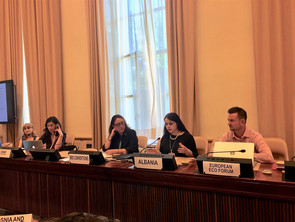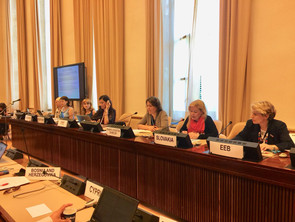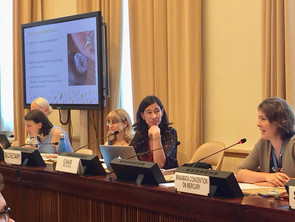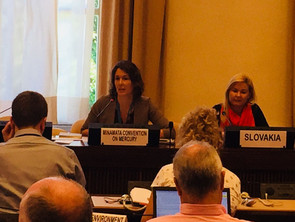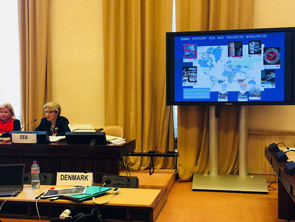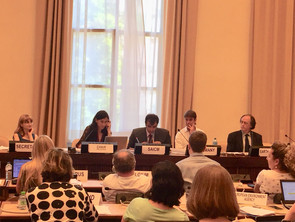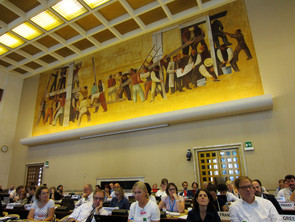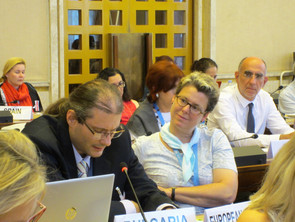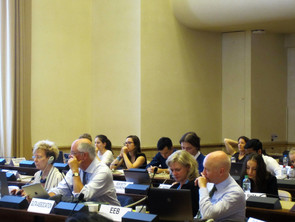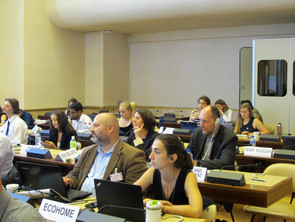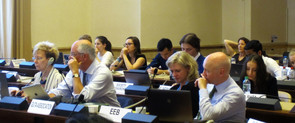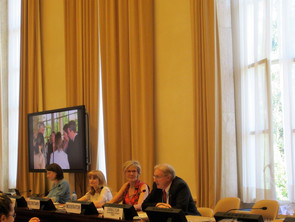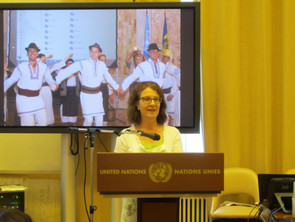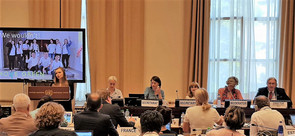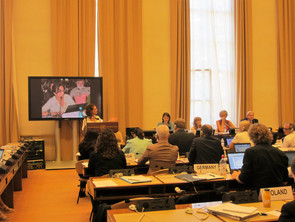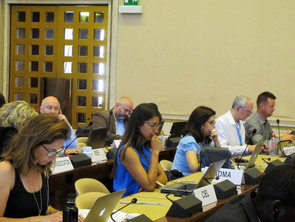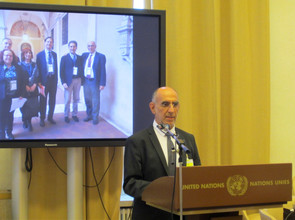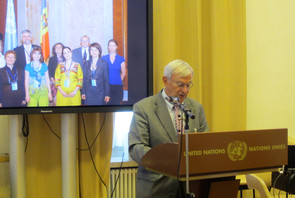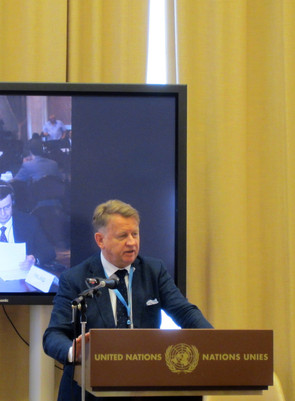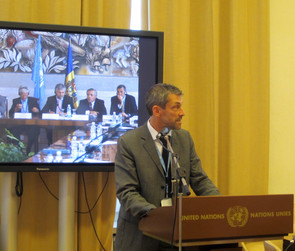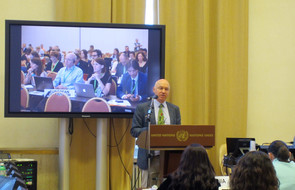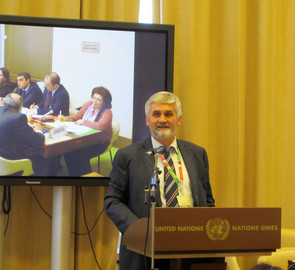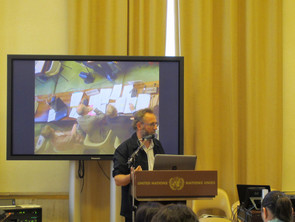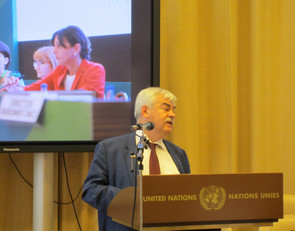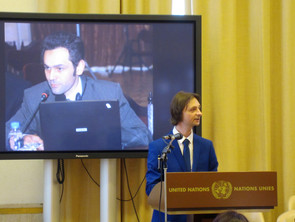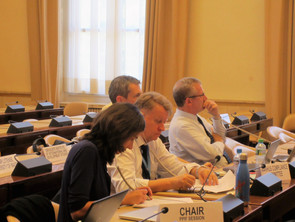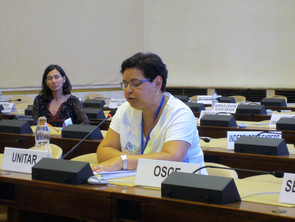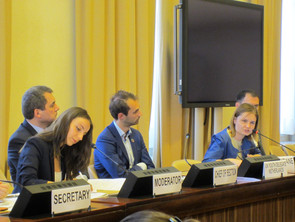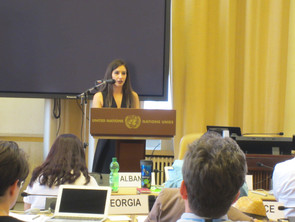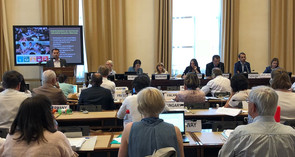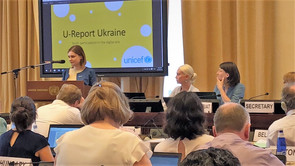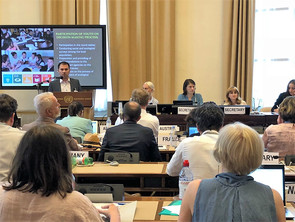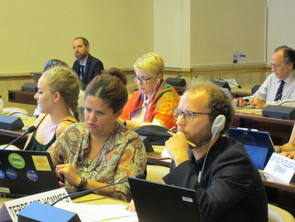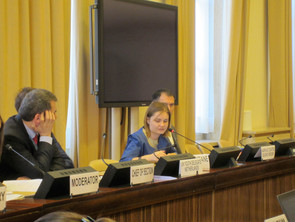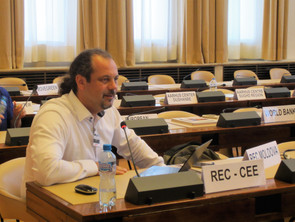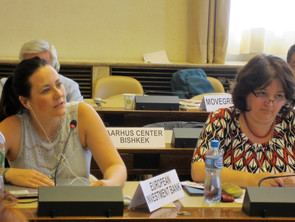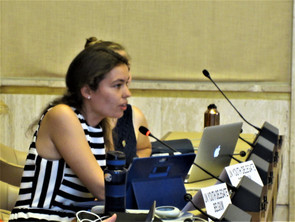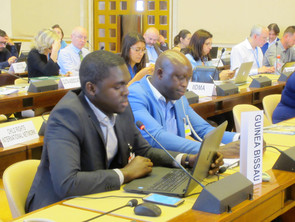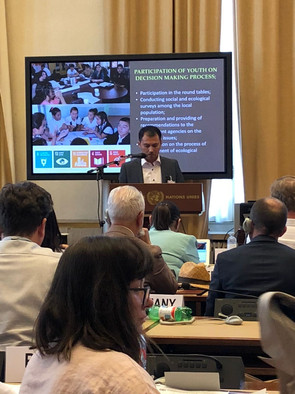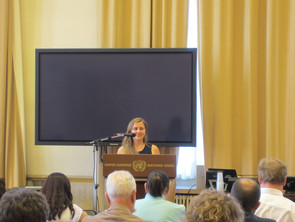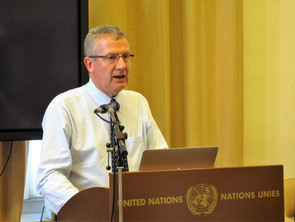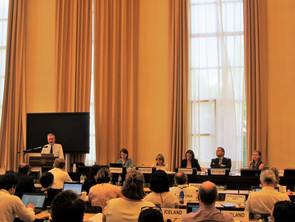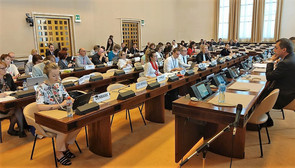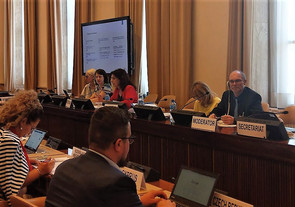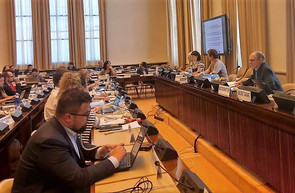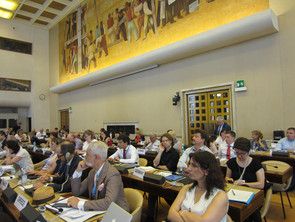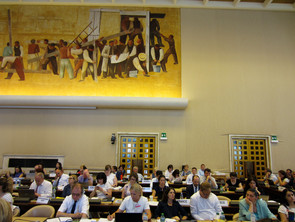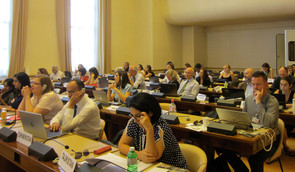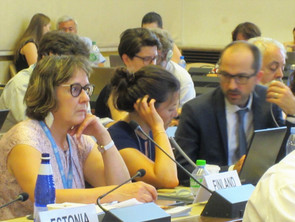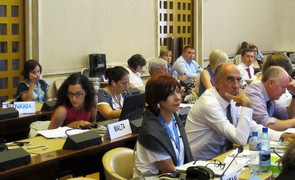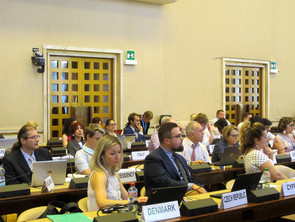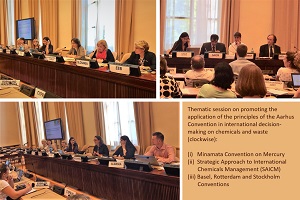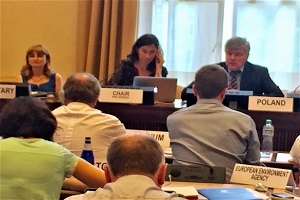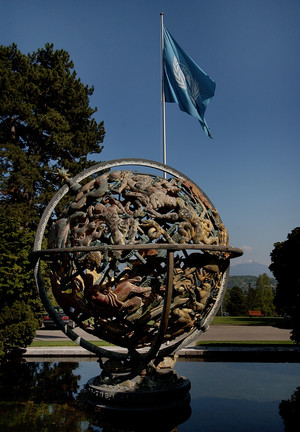 The twenty-second meeting of the Working Group of the Parties to the Aarhus Convention was held from 19-21 June 2018 in Geneva (Palais des Nations, Salle XII). The Working Group was expected to review the progress in implementing the 2015-2017 and the current work programmes and discuss a number of items, including, progress achieved in promoting access to information, public participation and access to justice, and in ratification of the Convention's amendment on genetically modified organisms; financial matters; and promotion of the Convention and relevant developments and interlinkages. Two thematic sessions, on access to information and on promoting the application of the principles of the Convention in international forums, were held during the meeting. Further, a special segment to celebrate the twentieth anniversary of the adoption of the Aarhus Convention was organized on the second day of the meeting.
The twenty-second meeting of the Working Group of the Parties to the Aarhus Convention was held from 19-21 June 2018 in Geneva (Palais des Nations, Salle XII). The Working Group was expected to review the progress in implementing the 2015-2017 and the current work programmes and discuss a number of items, including, progress achieved in promoting access to information, public participation and access to justice, and in ratification of the Convention's amendment on genetically modified organisms; financial matters; and promotion of the Convention and relevant developments and interlinkages. Two thematic sessions, on access to information and on promoting the application of the principles of the Convention in international forums, were held during the meeting. Further, a special segment to celebrate the twentieth anniversary of the adoption of the Aarhus Convention was organized on the second day of the meeting.
Special Segment on the Anniversary of the adoption of the Aarhus Convention
Please click here for more details on the Special Segment.
Thematic session on access to information
A thematic session on access to information was organized in the format of an interactive panel discussion followed by a general discussion on several subjects, including: (a) the benefits of providing public access to environmental information and the challenges encountered; (b) the scope of environmental information; (c) the providers of information; (d) exceptions to the provision of information and grounds for refusal; (e) the format of the information to be provided and timeliness; and (f) dissemination of real-time, up-to-date, accurate and functional environmental information in forms and formats meeting the needs of different users. The detailed programme for the thematic session is available on the meeting web page (please see tab below).
Photos of this session are in the tab below.
Thematic session on the promotion of the principles of the Convention in international forums
The meeting featured a thematic session on promoting the application of the principles of the Convention in international forums. The session focussed primarily on the promotion of transparency and effective public participation in international decision-making on chemicals and waste. This included panel presentations and round table discussion on processes under the United Nations Environment Programme’s Chemical Conventions (Basel, Rotterdam, and Stockholm Conventions), the Minamata Convention on Mercury and the Strategic Approach to International Chemicals Management (SAICM).
In addition, the Working Group considered progress made with regard to items discussed at the previous thematic sessions. This included
(i) climate-related processes with the focus on lessons learned from the twenty-third session of the Conference of the Parties (COP-23) to the United Nations Framework Convention on Climate Change and preparations for COP-24;
(ii) stakeholder engagement in the United Nations Environment Assembly and the UNEP access to information policies;
(iii) Sustainable Development Goals-related processes; and
(iv) International Financial Institutions-related processes.
The Working Group also addressed crosscutting issues related to international decision-making (e.g., hosting of an international event; identification of the public). The detailed programme for the thematic session is available on the meeting web page (please see tab below).
Photos of this session are available in the tab below.
